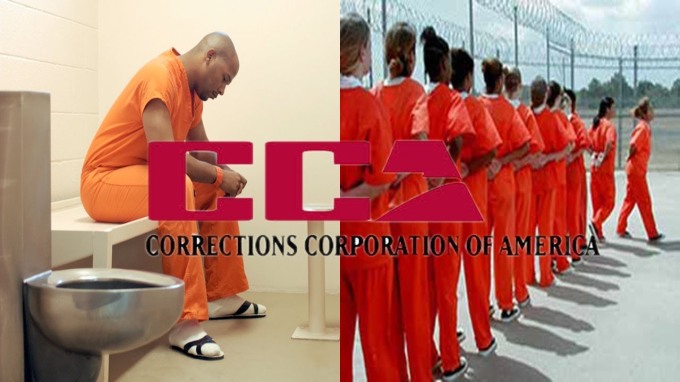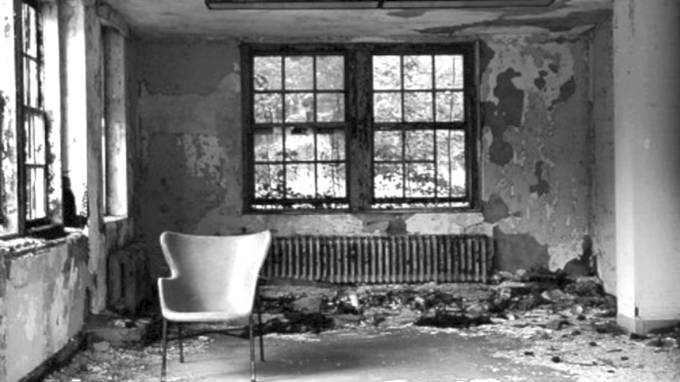US ends private prison contracts

Goodbye Corrections Corp of America
Deinstitutionalisation is the process of doing away with long term psychiatric hospitals and replacing them with less isolating community services such as mental health treatment on an outpatient basis.
The idea was that it would work in a couple of ways first by focusing on reducing the number of patients that were housed in mental institutions by releasing them of course, for some it meant shortening stays, in turn it would reduce both admissions and readmission rates.
The second focused on reforming mental a hospital's institutional processes, the image it would create of the patient in the mind of the patient. It was the hope that ending the processes it would reduce or eliminate the concepts of patient dependency, the feelings of being hopeless once out of the institution and unable to cope with that, learned helplessness which the institutions drilled into the heads of patients and loved one’s of the patients, and other behaviors that institutions reinforced into the minds of patients and the families of patients.
Not to mention, wide scale patterns of patient neglect, care and unimaginable abuse were occurring in the facilities.
The idea sounded great, on paper and in presentations.
The idea failed, miserably.
These days it’s difficult to find a long term psychiatric hospital that cares for the mentally ill.
Today over half of the mentally ill population are left to self manage, mental holds in hospitals are short lived, some patients are released when they truly shouldn’t be, but the hospital psych ward needs the bed space.
Patients are asked to get continued therapy, over half of which don’t because of cost, the inability to get to and from the therapy or simply because they don’t want it or are too mentally ill to realize they really do need it in order to live through each and every day.
Once in therapy, they are a number in the system and aren’t really always receiving the right kind of therapy.
Patients that are on medications don’t take them or worse mix them with other medications, illegal drugs or they drink with them.
This creates a problem for police because when they are heading to a call they don’t know what the individual was diagnosed with, are they on meds, off meds, mixing alcohol with the meds, etc.
A lot of mentally ill individuals struggle with keeping a job and they struggle to obtain housing so that leaves a good chunk of them living on the streets or couch surfing with friends who may or may not be aware the individual is struggling with mental issues until something happens.

When we made the move to private prison contracts...
Back in the 1980's not only was the hair and clothing bad, the public was frustrated over a ‘perceived’ failure of the penal system to rehabilitate offenders and in turn the public was reluctant to provide more funding for correctional institutions, to top it off the penal system was facing a demand for more jail space.
This created a ‘perceived’ issue that needed a very fast solution.
So one proposed solution was the privatizing of prisons and jails by contracting out, in part or in whole, the entire operation.
And now, we want to end the privatization of our penal system and go backwards instead of forward. We are not really looking for a solution to the ‘perceived’ issues.
It’s a reaction, one that I believe is normal for all of us once we realize that privatization of prisons really never was more cost effective.
Some are suggesting that the Department of Justice was maybe misguided on some of the information pertaining to why we need to begin the process of parting ways with private prison contracts.
One group says that private prisons show a savings of between 3-12% on annual per capita costs. Yet the report came with a caution that said they really could not honestly compare the costs between private and non-private prisons because of inmate population differences and programs offered.
The report found that as of January 2014 over half of the prison population housed in private prisons were non-us citizens.
That really isn’t the full picture because that particular report did not truly look at or study the actual demographics of those that were in prison at the time they conducted the study.
The report did study to see how the two compared to 8 measures of safety and security. The study found that private prisons did a poor job when it came to things like contraband, lockdowns, inmate discipline, grievances, phone monitoring and reports of incidents.
It’s easy to conduct a controlled study in order to obtain the outcome one wants. I can do it and so can you. I’m fairly certain a 5 year old can do it as well.
The issue here is, what happens when we or if we truly part ways with private prison contracts?
But let’s back up and look at the situation again...
Severing ties with private prisons will affect maybe 15-20% of Federal Inmates. That’s right, Federal inmates. States can still keep what contracts they have in place for state contracted private prisons.
They can also choose to part ways with private prison contracts if they wish. This decision would not affect states that use private run prisons on the state level.

I worked for this really great company once, the owner Troy Widgery was a really good owner, and an even better manager/trainer.
He always pushed me to not focus on a ‘perceived’ problem. He was right, because our focus on the ‘perceived’ problem clouds our abilities to come up with a solution that will provide the outcome we truly want.
It also clouds our ability to figure out if we truly have a problem or if the problem might be something we never even considered as the culprit.
Just remember, when we decided on Deinstitutionalisation in psychiatric facilities, we saw a ‘perceived’ problem, ran to create a solution and never planned for the outcome that eventually followed.
In the 1980’s, we saw a ‘perceived’ problem with the penal system and today, we are not liking the solution that created the outcome we are now hearing about.
“The problem is not the problem, the problem is your attitude about the problem.”
Cristal M Clark
https://crimeshop.org
